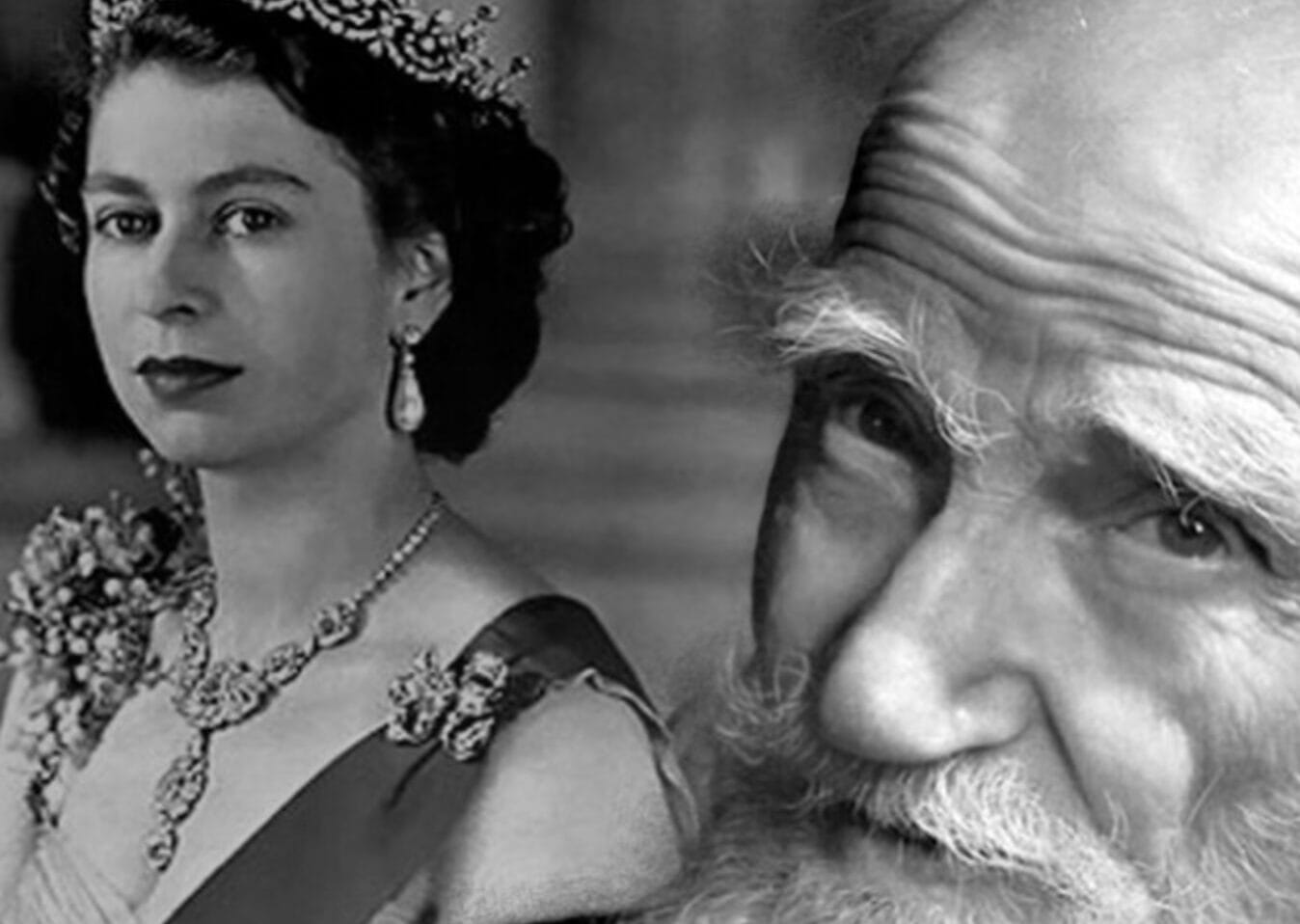There is a popular dialogue on the RuNet in which the famous playwright clearly demonstrates female corruption to the Queen of Great Britain herself. We have verified the accuracy of these publications.
The conversation between the playwright and the queen is usually quoted as follows: “Bernard Shaw once said that all women are corrupt. The Queen of England, having learned about this, when meeting with Bernard, asked:
“Is it true, sir, that you say that all women are corrupt?”
- Yes, Your Majesty.
- And me too? - the queen was indignant.
“And you too, Your Majesty,” Shaw replied calmly.
- And how much do I cost?!
- Ten thousand pounds sterling.
- What, so cheap?
“You see, Your Majesty, you are already bargaining.”
This dialogue can be found on Facebook (1, 2, 3, 4, 5), "VKontakte", blogs and on entertainment sites.
Such posts do not say which queen the playwright spoke to. Bernard Shaw achieved his first success under Queen Victoria, and one might assume that we are talking about her, but the writer became truly famous after her death and the ascension to the throne of Edward VII (from him until Elizabeth II of Great Britain ruled male monarchs). There is no information that Shaw was invited to any events with the participation of Queen Victoria, according to according to researchers, she hardly even knew about his existence. But Shaw himself always spoke of her with reverence and more than once publicly defended her from criticism. At the same time, in general, the playwright was rather critical and critical of the monarchy. called myself a Republican. Show repeatedly refused from joining the Order of Merit, which is headed by the reigning British monarch (he also decides on new members). As for Queen Elizabeth II (often publications about witty dialogue are accompanied by photographs of her), Shaw did not live to see her reign: he died in 1950, after two years beforehow Elizabeth ascended to the throne.
A search for key phrases from the alleged dialogue between Shaw and the Queen in English gives quite a few results, and some of these publications are posted in Russian sources (For example, on the resources of language schools). But in English there is a similar dialogue in which a man asks a woman if she would sleep with him for some impressive amount (for example, a million dollars). The woman agrees. “And for ten dollars?” - asks the man. “Who do you take me for?!” - the woman is indignant. “We have already found out who you are,” says the man. “We just have to decide on the price.” This dialogue is sometimes given without names, sometimes attributed to the same Show, Sometimes - Winston Churchill, Oscar Wilde etc.
Quote Investigator Project discovered The earliest publication of this dialogue is in the archives of The New York Post, in one of the June 1936 issues. There it sounded like this:
"They say it happened to the lord Beaverbrook and one visiting American actress. During a game of hypothetical questions, Beaverbrook asked the lady:
“Would you agree to live with a stranger if he paid you a million pounds?”
“Yes,” she answered.
- What if he paid five pounds?The offended lady flushed:
- Five pounds? Who do you take me for?To which Beaverbrook calmly replied:
- We have already found out who you are. Now we are trying to determine the price.”
In 1936–1937, this story, with reference to The New York Post, appeared in several other American and Canadian newspapers. However, already in the 1940s, Quote Investigator found out, it began to be distributed without reference to the original source and in an altered form: in some publications, a “visiting American actress” turned into a “famous actress”; V another text the dialogue allegedly took place in court between the lawyer and the “pretty defendant”; in the 1960s, versions appeared in which Lord Beaverbrook was replaced by Churchill, writer H. G. Wells and US President Woodrow Wilson.
As for the version in which the dialogue was conducted with the Queen of England, it, apparently, appeared immediately in Russian. According to data National Corpus of the Russian Language, it is mentioned in a collection of jokes from the 1970s–2000s, as well as in the book by journalist Vladimir Shakhidzhanyan “1001 questions about this,” published in 1999.
Thus, Bernard Shaw did not prove to the Queen of England that all women are corrupt. This is a revised historical anecdote that was first published in the 1930s, starring the British Lord Beaverbrook and an unnamed American actress.
Cover photo: Facebook screenshot
Read on topic:
- Did Bernard Shaw say: “Life is not about finding yourself. Life is about creating yourself”?
- Did Bernard Shaw say: “A happy family is an early paradise”?
- Loved Armenian cognac, knew how to lay bricks and met the US President naked? Truths and myths about Winston Churchill
If you find a spelling or grammatical error, please let us know by highlighting the error text and clicking Ctrl+Enter.






